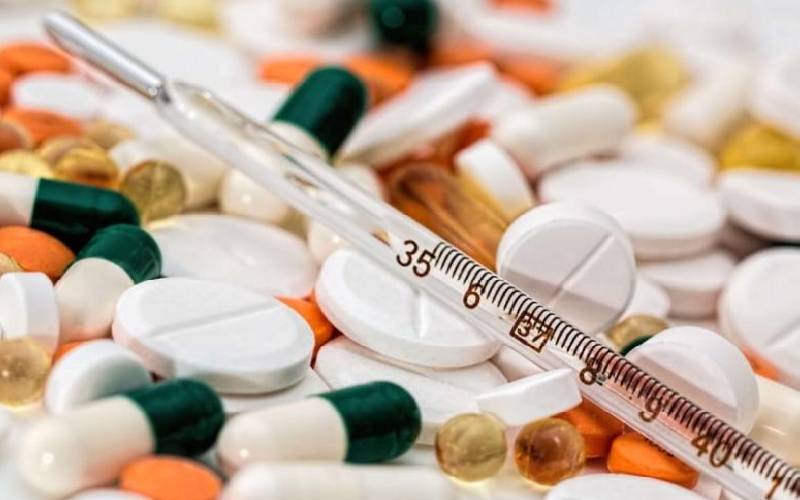 Rodchenkov Anti-Doping Act is a new US law on anti-doping that is named after a Russian whistleblower, Dr Grigov Rodchenkov. The Act seeks to criminalise doping activities in international competitions and, more specifically, competitions involving US athletes or competitions in which two or more US companies are corporate sponsors, or competitions involving three or more countries.
Rodchenkov Anti-Doping Act is a new US law on anti-doping that is named after a Russian whistleblower, Dr Grigov Rodchenkov. The Act seeks to criminalise doping activities in international competitions and, more specifically, competitions involving US athletes or competitions in which two or more US companies are corporate sponsors, or competitions involving three or more countries.
This Act is premised on the fact that doping distorts the integrity of sport and begets other crimes such as bribery and money laundering; cheats clean athletes and corporations interested in sponsoring clean sport; doping defrauds the US, which is a major contributor to the work of the World Anti-Doping Agency (Wada); a number of international organisations and countries speak against doping and thus this law fits in international law; Wada and international sports bodies lack the tools to effectively fight doping perpetuated by systems such as State sponsorship; whistle-blowers need protection; and that athletes who have been defrauded in the past lack an appropriate mechanism for redress.
The specific crimes include doping fraud; the manufacture, distribution, or possession of performance-enhancing drugs; administration of performance-enhancing drugs; and retaliation against whistle-blowers, among others. This law foresees prison terms of between five and 10 years and fines ranging from Sh10 million to Sh100 million. The law allows the US government to follow up any person anywhere who commits any of the listed offences. The law has been supported by the United States Anti-Doping Agency.
Wada and the IOC have criticised the law, claiming it will interfere with their efforts to combat doping in sport. To begin with, the IOC has miserably failed to combat doping in sport since 1928. At the height of it in 1988, instead of punishing all those who tested positive, the IOC chose to sacrifice Ben Johnson alone.
At virtually all Olympic games, many athletes who doped stood on the winners’ podium to receive medals and prizes. Forensic testing of some of the stored samples revealed positive results, thereby pointing out weaknesses of relying on science alone. Between 1956 to 1999, doping became not only a cat-and-mouse game between the dopers and the testers, but it also took two major approaches: In the Western world, sports federations were on the forefront of doping athletes whilst in the Eastern bloc, doping was a State-sponsored affair.
For a while, we thought the collapse of communism also led to the collapse of state-sponsored doping. We were totally wrong as the McLaren Reports later revealed, supported by the memoirs of a former anti-doping Czar, Rodchenkov (after whom the US Anti-Doping Act is named) have revealed. All this time, the IOC was totally toothless, hence the need to set up a separate and independent body in 1999 – Wada.
Whereas trafficking in prohibited substances has been reported in Spain and Italy, the laws of those countries could only reach the ‘traffickers’, leaving the manufacturers to go scot-free. Even such action was beyond the powers of the IOC and Wada. Also, the arrest and eventual prosecution in France of the former president of the World Athletics body on doping and related vices are measures that cannot be effected by either the IOC or Wada.
The failure of both Wada and the IOC to stand up firmly against Russia after the 2016 revelations of State-sponsored doping exposed their underbellies. In contrast, the Paralympic Committee was very categorical in refusing to admit Russia to its competitions until Russia cleans her house. The opposition to the Rodchenkov Act by the IOC and Wada can only be described as baffling.
If the two bodies are for ‘clean’ sport, in whose interest could they be working in opposing a law that seeks to assist and penetrate areas they cannot and without reducing their resources? Clearly, sports bodies’ efforts to fight doping has not succeeded. Any useful support is welcome.
Fraudsters who have hitherto benefited from doping and distorted sports now have nowhere to hide. The law stretches out to reach manufacturers, distributors, traffickers of doping substances and those who administer doping substances anywhere in the world while offering special protection to whistle-blowers. Athletes who may have been cheated out of medals and benefits can sue for compensation. Previous attempts to seek compensation in US and European courts had been unsuccessful in the absence of an enabling law.
Many Kenyans have tested positive for many years. Under the Wada rules, only the athletes and officials have been punished. Rarely have coaches been nabbed. In Kenya, no supplier, manufacturer or trafficker has ever been punished. The serious perpetrators have largely escaped punishment.
However, by doping Kenyan athletes, they interfere with the chances of other athletes winning. This is where the US comes in. Even where no US athletes are involved, US firms such as Nike support sports bodies. On account of this, the US will come calling for the perpetrators of doping.
The US law also applies where Kenya may be participating with three or other countries. Perpetrators of doping in Kenya must now cease their nefarious activities – because the Rodchenkov Anti-Doping Act 2019 is here and applies to them.
Indeed, the Rodchenkov Act is a useful addition to the global fight against doping.
Prof Dr Wekesa, Dean of Law, Daystar University
Credit: Source link